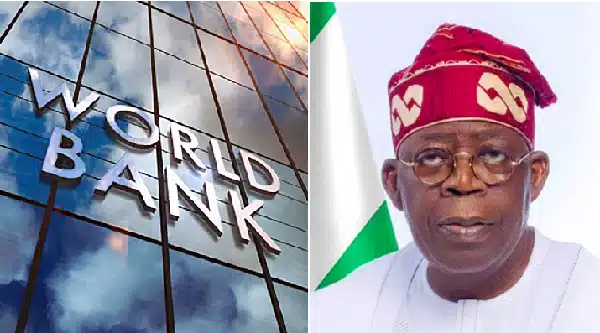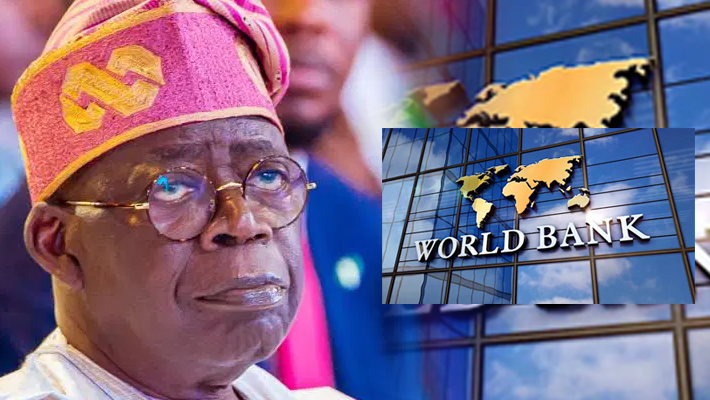Since May 2023, Nigeria has introduced major reforms (policies) aimed at stabilizing its economy, leading to modest growth, improved fiscal health, and increased foreign exchange reserves.
While these measures were crucial to averting a looming fiscal crisis and setting Nigeria on a stronger development path, they have also created short-term challenges for households and businesses.
The World Bank’s newly released Nigeria Development Update Report, titled “Staying the Course: Progress Amid Pressing Challenges,” emphasizes the importance of maintaining these policies while tackling structural issues to curb inflation and foster long-term investment, growth, and job creation.

Though it is still early, the report notes that positive outcomes are starting to emerge at the macroeconomic level.
For instance, while overall output growth remains modest, it edged higher through mid-2024 as oil sector production stabilized and the service sector saw robust activity.
Nigeria’s fiscal position is also improving, with the federal fiscal deficit narrowing from 6.2% of GDP in the first half of 2023 to 4.4% by mid-2024, helping reduce debt risks.
Additionally, foreign exchange reserves—critical for safeguarding against external shocks—climbed from $32.9 billion at the end of 2023 to over $38.8 billion by mid-October 2024.
However, inflation remains elevated, rising again in September 2024, driven by recent gasoline price hikes and flooding.
READ ALSO: JUST IN: Reversing Tinubu’s Reforms Will Wreck Nigeria’s Economy — World Bank Claims
Given these promising indicators, the report stresses the need to sustain the current macroeconomic policies, including the Central Bank of Nigeria’s tight monetary stance.
Complementing these reforms with efforts to address long-standing structural bottlenecks will accelerate progress in combating inflation and stimulating the investment, growth, and job creation Nigeria urgently needs.
The report also highlights how previous distortionary and unsustainable policies had prevented Nigeria from realizing its vast potential.
Monetary and foreign exchange policies were increasingly opaque and inconsistent with price stability, including the use of multiple managed exchange rates that were overvalued.
Additionally, fiscal revenues were constrained by one of the world’s lowest tax-to-GDP ratios (3.2% in 2022), while a significant portion of oil revenues was consumed by an expensive and regressive gasoline subsidy.
In response, the Central Bank launched major foreign exchange policy reforms, leading to a unified and more market-reflective official exchange rate.
The government also moved toward market-based pricing for gasoline, addressing the high fiscal cost of subsidies.
“Nigeria made the bold and courageous decision to implement difficult but essential reforms in the face of an already fragile economy, high inflation in food and transport, and mounting uncertainties,” said Ndiame Diop, World Bank Country Director for Nigeria. “Without these reforms, Nigeria would have faced a severe fiscal crisis, undermining the government’s ability to meet its obligations to citizens.
Moving forward, it is critical to consolidate the improving fiscal outlook, support the poorest households in managing the loss of purchasing power, and expand opportunities for growth and job creation, particularly for young Nigerians.”
The report provides several key recommendations to build on Nigeria’s macroeconomic reforms and ignite growth and employment:
- Maintain a tight monetary policy until inflation is consistently reduced and enhance policy effectiveness.
- Ensure the exchange rate remains unified and reflects market dynamics, while broadening the foreign exchange market.
- Focus on four key areas to reduce debt risks and create room for development and poverty-reduction spending: continue removing fuel subsidies, increase transparency in the oil sector, boost non-oil revenues through improved tax policies, cut government waste, and align budgets with realistic projections to avoid unplanned spending.
- Protect vulnerable populations by expanding cash transfer programs and strengthening social safety nets.
- Continue addressing long-standing structural constraints to unlock growth potential.
“Recent reforms are starting to restore macroeconomic stability,” said Alex Sienaert, World Bank Lead Economist for Nigeria. “GDP is projected to grow by 3.3% in 2024, rising to an annual average of 3.7% over 2025-2027; headline inflation is anticipated to peak at an average annual rate of 31.7% in 2024, largely driven by the previous depreciation of the naira and increased gasoline prices. Yet, in the medium term, staying the course with implementation of the current policy mix will reduce inflation, expected to fall to 14.3% by 2027 in the base case.”
(Peoplesgazette)
Follow the Parallel Facts channel on WhatsApp: https://whatsapp.com/channel/0029VaCQSAoHgZWiDjR3Kn2E









Leave a Reply